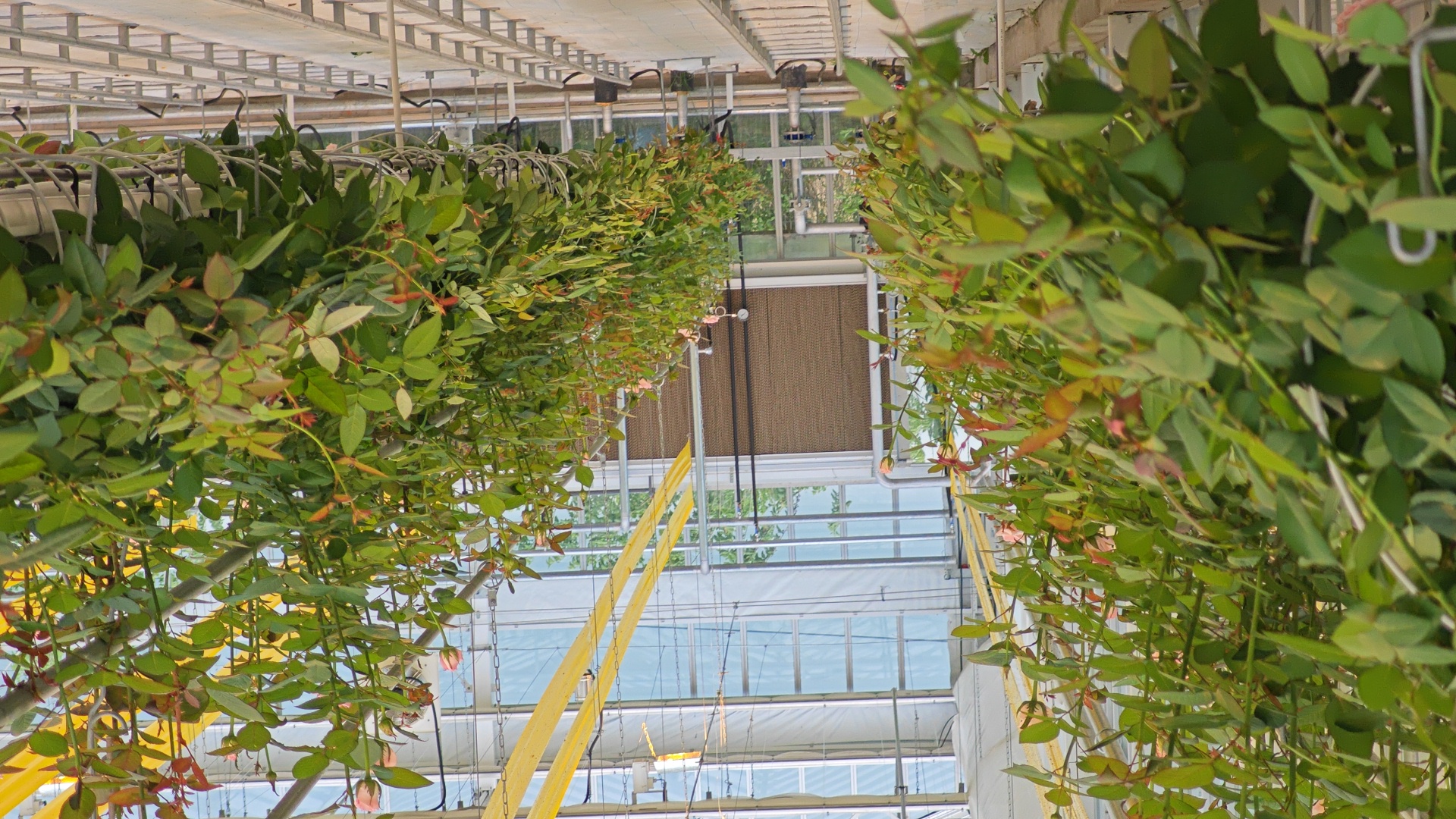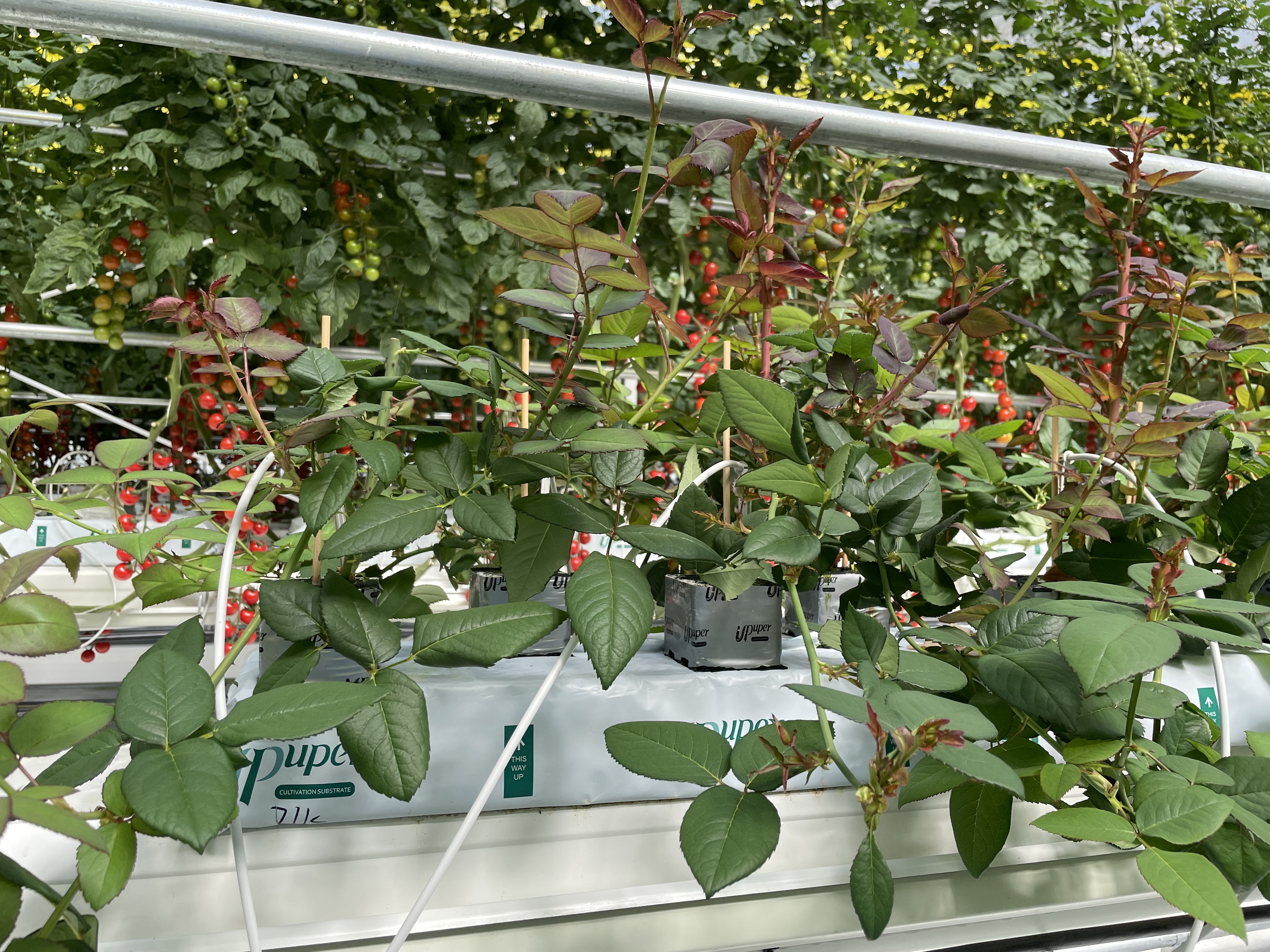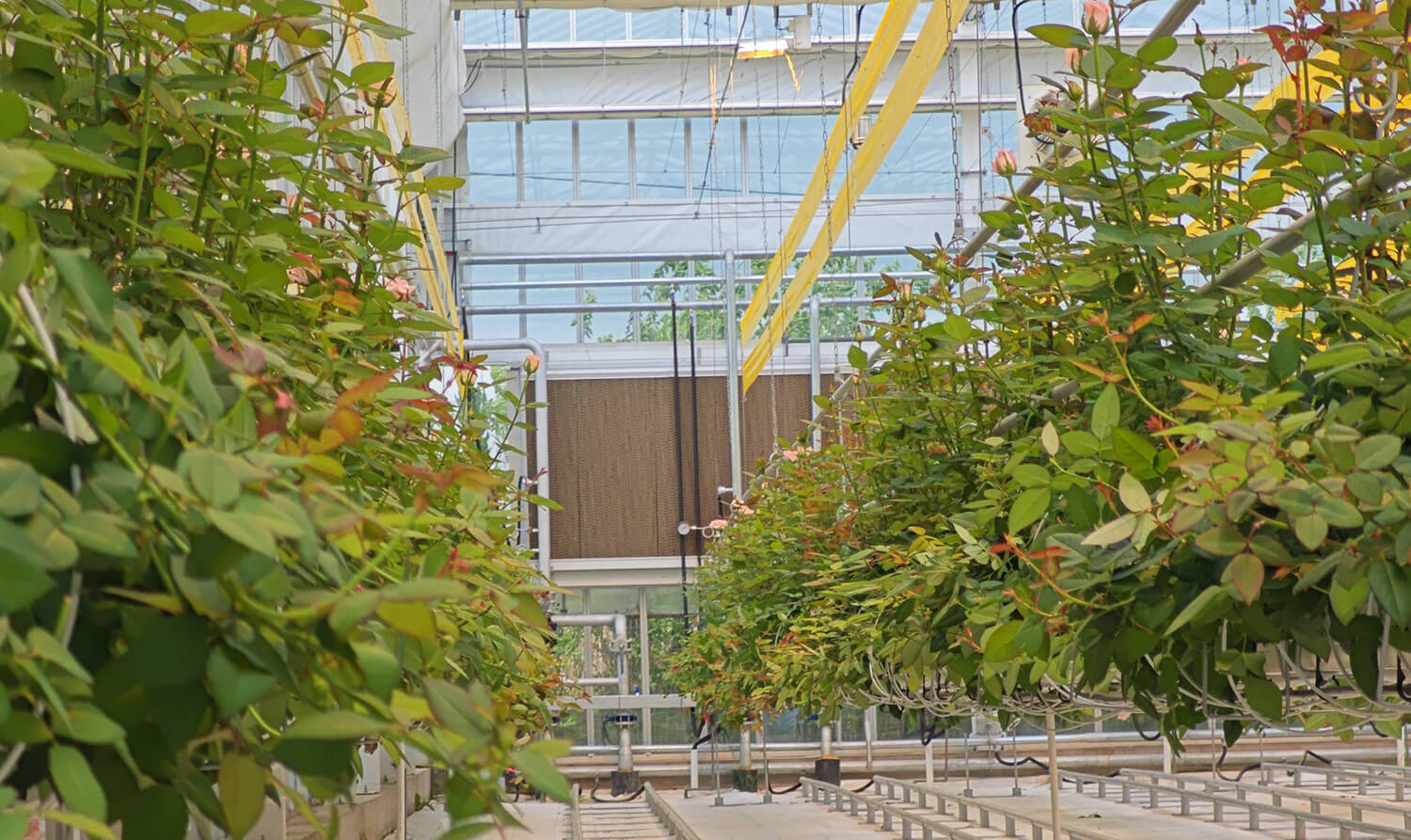Growing roses in greenhouses requires precise control over water, nutrients, and root health to ensure vibrant blooms and high yields.
Rock wool, made from molten basalt rock spun into fibrous mats or cubes, provides an optimal balance of water retention, aeration, and sterility—making it perfect choice for commerical hydroponic rose cultivation.

Let's examine why rock wool has become the substrate of choice for commercial hydroponic rose production.
1. Superior Water Retention & Aeration
Roses thrive in a root zone that maintains consistent moisture without waterlogging. Rock wool excels in this aspect because:
Holds water efficiently – Its fibrous structure retains moisture while allowing excess to drain, preventing root rot.
Promotes oxygen flow – Even when saturated, rock wool retains air pockets, ensuring roots receive ample oxygen—a critical factor in preventing diseases like root rot.
Unlike soil, which can compact and suffocate roots, rock wool maintains an ideal balance of hydration and aeration, leading to stronger, healthier rose plants.
2. Sterile & Disease-Free Environment
Soil-borne diseases (such as Fusarium wilt, Pythium, and nematodes) are major threats to greenhouse roses. Rock wool offers a sterile, inert growing medium, eliminating these risks:
No pathogens – Since rock wool is manufactured at high temperatures, it arrives free of harmful bacteria, fungi, and pests.
Reduced need for pesticides – Growers can minimize chemical treatments, making production more sustainable and cost-effective.
This sterility is especially valuable in hydroponic and recirculating systems, where diseases can spread rapidly if introduced.
3. Precise Nutrient & pH Control
Roses are sensitive to pH and nutrient imbalances, but rock wool allows for exact control over feeding:
Neutral pH after conditioning – Fresh rock wool is slightly alkaline, but pre-soaking in pH-adjusted water (5.5–6.5) stabilizes it for optimal rose growth.
Customizable nutrient delivery – Hydroponic systems paired with rock wool enable tailored nutrient solutions, ensuring roses get the right mix of nitrogen, phosphorus, potassium, and micronutrients.
This precision results in larger blooms, richer colors, and longer vase life—key qualities for commercial rose production.
4. Stronger Root Development
A healthy root system is the foundation of thriving roses. Rock wool’s structure encourages dense, fibrous roots by:
Providing a stable yet breathable environment for roots to expand.
Preventing compaction, which can stunt growth in soil-based systems.
Studies show that roses grown in rock wool develop faster root colonization compared to traditional substrates, leading to quicker establishment and higher yields.
5. Consistency & Scalability for Commercial Growers
For greenhouse rose farms, uniformity and repeatability are crucial. Rock wool offers:
Homogeneous growing conditions – Every slab or cube provides the same water/nutrient distribution, ensuring even crop growth.
Ease of automation – Rock wool integrates seamlessly with drip irrigation, NFT, and other hydroponic systems, reducing labor costs.
Space efficiency – Its compact design allows for high-density planting, maximizing greenhouse space.
These factors make rock wool a cost-effective, high-performance choice for large-scale rose production.
6. Sustainability & Water Efficiency
With increasing focus on resource-efficient farming, rock wool stands out:
Water savings – Hydroponic systems with rock wool recycle water, using up to 90% less than soil-based growing.
Multi-year planting – UPuper® has introduced innovative rock wool slabs designed explicitly for rose cultivation. These slabs ensure reliable performance for multiple years without the need for replacement, leading to significant cost savings.
Reduced chemical runoff – Closed hydroponic systems prevent fertilizer leaching into the environment.
Rock wool hydroponic substrate offers unmatched precision, disease resistance, and efficiency for greenhouse rose cultivation. Whether you’re a commercial grower aiming for high yields or a hobbyist seeking flawless blooms, rock wool provides the ideal root environment for success.

By adopting rock wool, rose growers can achieve:
✔ Healthier, more vigorous plants
✔ Bigger, longer-lasting flowers
✔ Lower disease risk & reduced pesticide use
✔ Higher profitability through automation & scalability
Upgrade your rose production today—switch to rock wool hydroponics!
Discover how UPuper's® specialized rose cultivation slabs can transform your greenhouse operation. Visit www.upuper.com to learn about our multi-year performance guarantee and request a free consultation with our horticultural experts.









